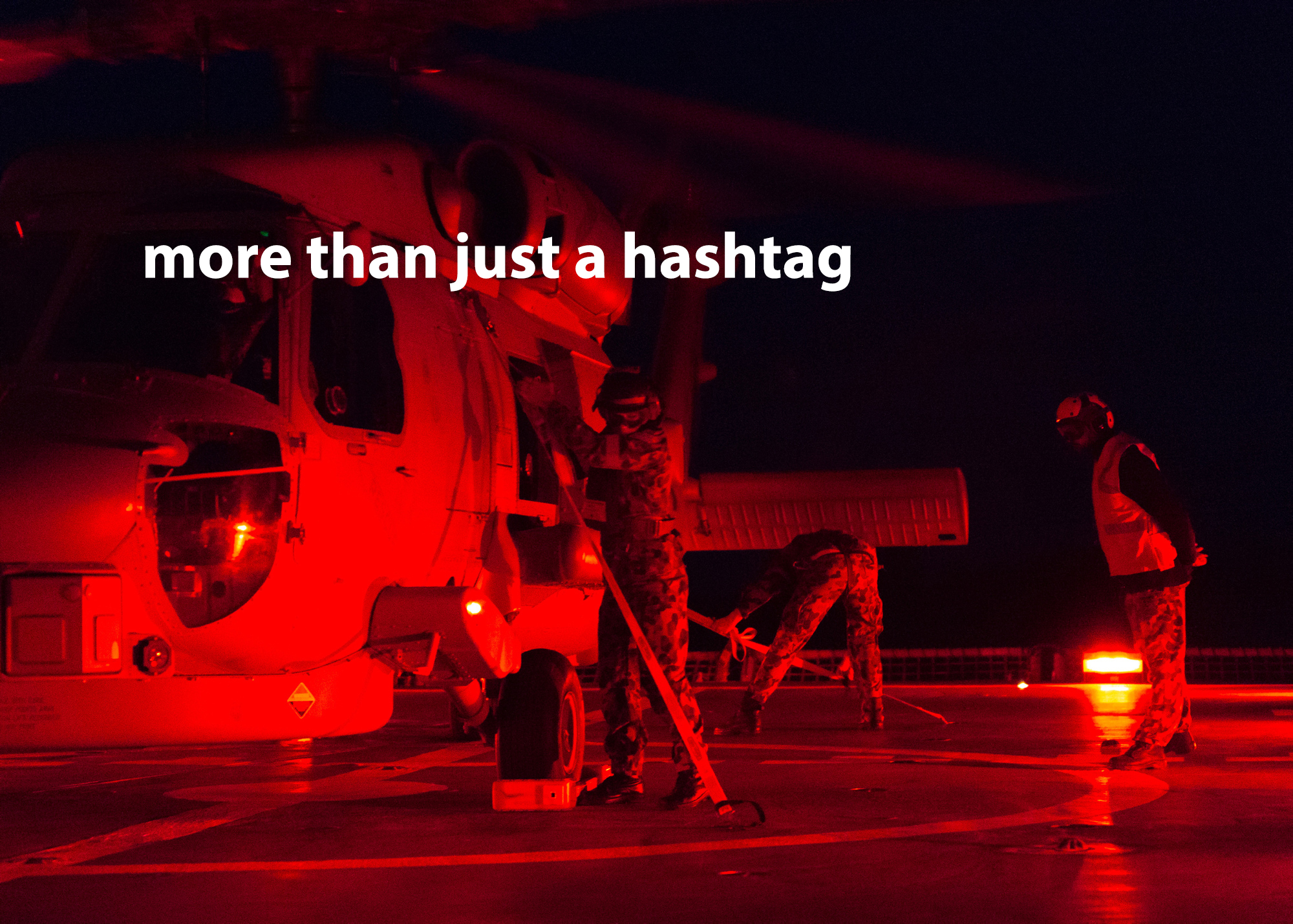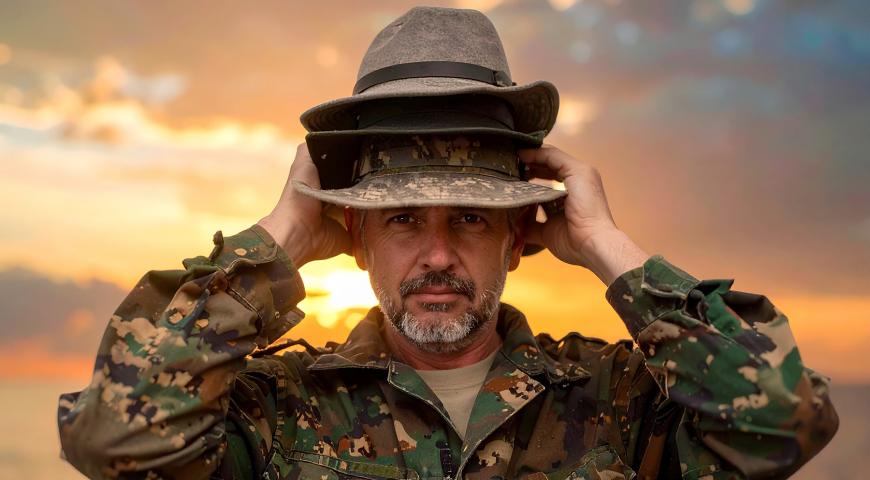The current landscape
For some reason, the Australian Defence Organisation (ADO) seems particularly susceptible to buzzwords. It would appear that for any new idea to have a chance of sprouting on what can often be somewhat barren ground, then it must have a catchy moniker. The prevailing thought seems to be that without one, an idea has little chance to gain traction against all the other good ideas being touted in Defence Headquarters.
This is not a new phenomenon. A decade ago, everything had to be effective and efficient, despite these two terms often being in direct competition with each other. Then, for a while, agile was the word of the day, before being replaced with adaptive which then in turn was replaced with innovative. This was, of course, before everything in the known world became complex.
For some reason these buzzwords never ride alone, but instead roam staff papers in unholy trinities of adjectives; the three amigos of banality. Take the First Principles review, which states that Defence must “achieve its mission in a transparent, accountable, and efficient manner”, or Plan Jericho which sees Air Force providing “the most rapid, effective and responsive military options for the Australian government” (as if inefficiency or ineffectiveness were ever viable alternatives). Indeed, the ratio of ‘three-to-one’ seems to be just as embedded into military thinking when viewed as adjectives to nouns as it does to the strength of attackers versus defenders. This tsunami of ill-defined buzzwords is such that many an officer has amused themselves during military conferences playing ‘buzzword bingo’.
So, is the current prevalence of the term intellectual edge (perhaps more commonly seen written online as #IntellectualEdge) just another example of a transient buzzword or, to deliberately misquote Sir John Templeton, is it a case that “this time it’s different”?
The need for a definition
The military loves definitions. Actually, to be more precise the military loves to define words and terms so that they have distinct meanings that vary, just enough, from how they are understood by the rest of the world. Take the word synchronization. The Oxford dictionary defines this as “the operation or activity of two or more things at the same time or rate”, whereas this is defined by the military as “the arrangement of related and mutually supporting actions in time, space and purpose to maximise their combined effects”. A subtle, but significant, difference. In the military you can do two or more things at the same time, but if you are not maximising their combined effects then you have not achieved synchronisation.
These definitions are important. Just as doctors and lawyers use precise terms to avoid confusion, so the profession of arms operates under a common lexicon to ensure everyone shares a common understanding. In the chaos and stress of war, this reduces the risk of misunderstanding. It is part of the military’s DNA. So, what is the definition of intellectual edge.
Well, there currently isn’t one, or at least not an organisationally accepted one. The term originated in the Ryan Review of 2016 and was first adopted by the Army in its PME Strategy of 2017. Yet while this document explained in detail why an intellectual edge was needed, and how an intellectual edge would be delivered, it never actually articulated what an intellectual edge was. Instead, the strategy was written in such a way that it was assumed the meaning of the term was self-evident; in hindsight probably a mistake, as a term that can mean anything to anyone often ends up meaning nothing at all.
The term was then adopted by the Australian Defence College (ADC) when it published the Joint Professional Military Education (JPME) Continuum. In fact, with 24 entries in just 64 pages of text, it is fair to say the term has been wholeheartedly embraced by ADC. However, again there is much assumption of meaning and little definition. The closest the JPME Continuum comes to a definition is:
“The combination of professional knowledge and skills; cognitive capacity; character and ethos; and experience and practice that enables the professional mastery of the member to achieve and sustain the military advantage”.
This definition is problematic for two reasons. First, it assumes an intrinsic link between development of the individual and a de facto institutional advantage. This is a broad leap of logic to make. There are many examples of extraordinarily professional individuals being stifled by institutional inertia, not least the investigation into the completely avoidable Challenger shuttle disaster. Therefore, the assertation later in the same document that Australia’s JPME system will help “safeguard Australia’s intellectual edge in warfighting” is at best an unproven assumption, at worst wishful thinking.
The second reason this definition is problematic is it fails to challenge the organisation. As it stands, it is easy for senior ADO leaders to pay lip service to the notion of an intellectual edge because it doesn’t change anything. Indeed, there is nothing to really object to. The term is about investing in people (tick), covers off on ethos (tick) and has absolutely no impact in the way that the ADO goes about everyday business (double tick). Yet, if the overall aim is to maximise the intellectual capacity of the workforce, then the policies, procedures, decision making processes and culture within the entire Department of Defence needs to be such that this can actually occur. After all, there is no point developing individuals in the workforce if the organisational structure does not maximise their contributions. Therefore, the definition of intellectual edge arguably cannot be solely linked to the myriad of attributes we hope to build within individual members.
A proposed alternative definition
If the term intellectual edge is to genuinely change the ADO landscape, then arguably it must seek to maximise both the individual and organisational capacities to deliver capability in support of the national strategic defence objectives: the intellectual edge must contribute to overall defence strategy. Therefore, and in order to spark discussion, I propose the following definition:
“The intellectual edge is an organisational ability to understand the environment and exploit opportunities in order to create an advantage in time and space in which the ADO can deliver an effect in support of Australia’s strategic defence objectives”.
Let’s break this down. This definition is comprised of three parts. The first part is “an organisational ability to understand the environment and exploit opportunities”. To achieve this, we need a highly developed workforce operating in an organisation designed to maximise its intellectual capacity. The JPME Continuum, supported by single service initiatives, seeks to develop the workforce, but it must be accompanied by reform of the ADO to ensure the organisation effectively harnesses the intellectual capacity of its people. As with all highly hierarchical organisations, this is going to take some serious soul searching and the sacrifice of a few sacred cows.
The second part of the definition states “in order to create an advantage in time and space in which the ADO can deliver an effect”. Throughout history, militaries have largely relied on either mass or technological superiority over their adversaries to achieve an advantage. For a myriad of reasons discussed elsewhere, Australia is unlikely to possess either of these over the next twenty years, at least not as a standing force. However, this is not necessarily the weakness it would first appear. The purpose of possessing an intellectual edge is to be able to use the understanding of the environment and the identified opportunities (part one of the definition) to create temporal mass and a technological overmatch for just long enough to deliver an effect (part two).
The final part of the proposed definition is “in support of Australia’s strategic defence objectives”. This ensures that the purpose of an intellectual edge is linked to the tasks given to it by the government in the Defence White Paper. It is this golden thread of logic which gives the intellectual edge its legitimacy and, ultimately, makes it worth funding.
Conclusion
I am a firm believer that the ADO requires an intellectual edge if it is to deliver the government’s strategic defence objectives in the future. However, as I have written elsewhere, the intellectual edge cannot, indeed must not, be limited to only developing the individuals who comprise the workforce. To do so without ensuring the organisation is reformed to maximise this capability would be akin to training a thoroughbred racehorse and hitching it to a milk cart. Or to put it into an Australian context, using Winx to pull a B-Triple.
If the ADO truly believes in developing an intellectual edge, then the term needs to evolve from a buzzword to a program of cultural reform across the ADO. This reform program should aim to maximise the ability of the organisation to exploit opportunities. It can do this through not only developing its people, but also employing them within a structure that enables every person to reach their individual potential while combining to create an ADO which can out-perform an adversary.
While this will be a challenge, I fear if we fail to address both parts of this conundrum then the intellectual edge will simply remain little more than a twitter hashtag.
LTCOL Greg Colton is an infantry officer with over 18 years’ experience, including over four and a half years of operational service. Greg has held range of regimental, instructional and staff postings and in 2016/17 took a year’s sabbatical to accept a Research Fellowship at the Lowy Institute, Australia’s leading international policy think-tank. While at the Lowy Institute he ran a Defence funded project examining drivers of instability in the Pacific. On his return to the Army, LTCOL Colton assumed his current position as SO1 Professional Military Education at Forces Command. He is also Director of The Cove.
@colton_gregoryj
Social Mastery
Please let us know if you have discovered an issue with the content on this page.
Comments
Start the conversation by sharing your thoughts! Please login to comment. If you don't yet have an account registration is quick and easy.




